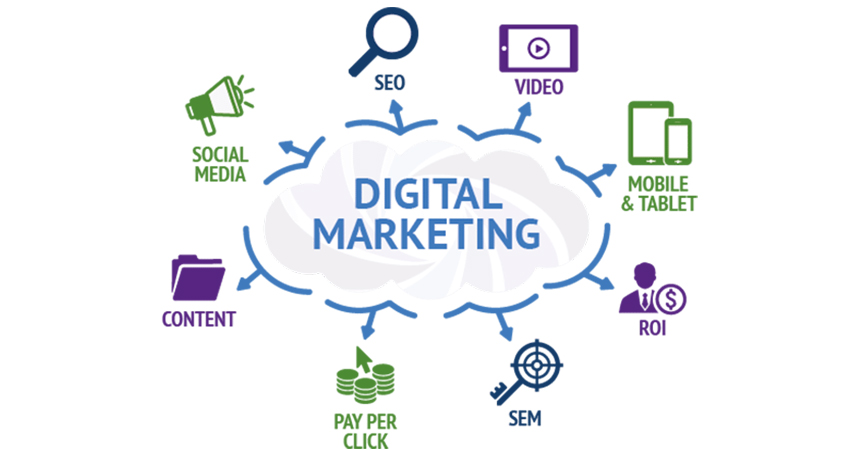Table of Contents
In today’s fast-paced, technology-driven world, digital marketing has emerged as a vital tool for small businesses to establish their presence, connect with their target audience, and drive growth. As traditional marketing methods continue to evolve, digital marketing offers numerous benefits that are particularly advantageous for small businesses with limited resources. This article delves into the importance of digital marketing for small businesses, highlighting key advantages and shedding light on strategies that can help small businesses thrive in the digital landscape.
Increased Visibility and Reach
One of the primary advantages of digital marketing for small businesses is the ability to enhance their visibility and expand their reach in the online realm. Unlike traditional marketing methods, digital marketing allows businesses to reach a vast audience beyond their physical location. By leveraging various digital channels, such as search engines, social media platforms, and email marketing, small businesses can connect with potential customers locally, nationally, and even globally.
Digital marketing techniques, such as search engine optimization (SEO), enable small businesses to optimize their online presence and rank higher in search engine results. This increased visibility translates into more organic traffic to their website and a greater chance of capturing the attention of their target audience. Moreover, targeted advertising options, such as pay-per-click (PPC) advertising, allow small businesses to precisely target their desired audience based on demographics, interests, and online behaviors.
Cost-Effectiveness
For small businesses with limited budgets, digital marketing provides a cost-effective alternative to traditional marketing methods. Traditional advertising mediums like television, radio, and print can be costly and often out of reach for small businesses. In contrast, digital marketing offers a range of affordable options that can be tailored to suit any budget.
Content marketing, for example, allows small businesses to create and distribute valuable and relevant content to attract and engage their target audience. This can be done through blog posts, videos, infographics, and more. With the right content strategy and distribution channels, small businesses can gain visibility and build credibility without incurring significant costs.
Additionally, social media platforms offer free or low-cost marketing opportunities for small businesses to connect with their audience, share updates, and build a community around their brand. Engaging with followers, responding to comments, and running targeted social media campaigns are all cost-effective ways to raise brand awareness and foster customer loyalty.
Targeted Marketing and Personalization
Digital marketing empowers small businesses to precisely target their marketing efforts to reach the most relevant audience. Through detailed data analysis and tracking, businesses can understand customer preferences, behavior, and demographics, allowing them to create personalized and highly targeted campaigns.
Email marketing, for instance, enables small businesses to segment their subscriber lists based on customer preferences and purchase history. By tailoring email content to specific segments, businesses can deliver more personalized messages, increasing the likelihood of engagement and conversions.
Furthermore, digital marketing allows for real-time monitoring and adjustments to campaigns, ensuring that marketing efforts remain effective. Small businesses can track key performance indicators (KPIs), such as click-through rates, conversion rates, and website traffic, to measure the success of their marketing activities. This data-driven approach allows businesses to optimize their strategies and make informed decisions to maximize their return on investment (ROI).
Building Brand Authority and Trust
Establishing brand authority and building trust are crucial for small businesses aiming to compete in a crowded marketplace. Digital marketing provides opportunities for small businesses to showcase their expertise, share valuable content, and engage with their target audience in a meaningful way.
By consistently producing high-quality content that addresses customer pain points and offers solutions, small businesses can position themselves as industry leaders and gain credibility. Blog posts, ebooks, webinars, and video tutorials are all effective content formats for demonstrating expertise and building trust.
Additionally, customer reviews and testimonials play a significant role in building trust. Small businesses can leverage online review platforms, encourage customer feedback, and actively engage with customers to foster positive relationships and establish a reputation for excellent customer service.
Measurable Results and ROI
One of the significant advantages of digital marketing is the ability to measure and track results effectively. Small businesses can employ analytics tools to monitor the performance of their digital marketing campaigns and gain valuable insights into customer behavior and preferences.
Platforms like Google Analytics provide detailed data on website traffic, user engagement, and conversion rates. Small businesses can assess the success of their marketing efforts, identify areas for improvement, and allocate resources accordingly. This data-driven approach ensures that marketing budgets are utilized optimally, maximizing return on investment.
Conclusion
Digital marketing has revolutionized the way small businesses operate and grow in the modern era. By harnessing the power of digital channels, small businesses can increase their visibility, reach a wider audience, and build brand authority. The cost-effectiveness, targeted marketing options, and measurability of digital marketing make it an invaluable tool for small businesses with limited resources. As the digital landscape continues to evolve, small businesses that embrace and adapt to digital marketing strategies will gain a competitive edge, effectively connecting with their audience and driving business growth.
Incorporating digital marketing into their overall business strategies is no longer optional for small businesses but essential for their survival and success in today’s digital age.




